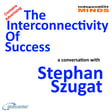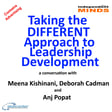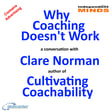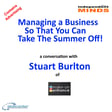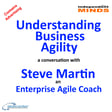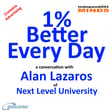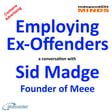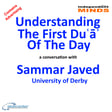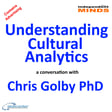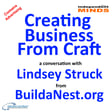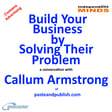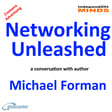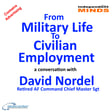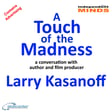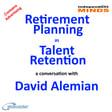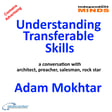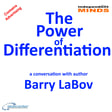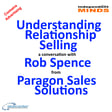
Prosper With Purpose – a conversation with author Colin Crooks MBE
Prosper With Purpose by Colin Crooks is a book that enables the reader to unlock the secret to building a successful business either as an entrepreneur or employee without burning out!
Colin Crooks MBE, is a serial social entrepreneur and experienced business coach. He has established five award-winning social enterprises and earned the Queen’s Award for Enterprise: Sustainable Development with his enterprise Green-Works.
That experience is captured in his book Prosper With Purpose in which he offers real-world insights and practical tools from someone who truly understands the challenges of running a small business.
In this episode of the Abeceder podcast The Independent Minds you will discover how at the heart of "Prosper with Purpose" is Colin’s proven 3 Ps framework:
1. Create a Plan:
2. Manage People:
3. Focus on Profit:
Bonus for Readers
Colin Crooks MBE offers every reader of Prosper With Purpose - 30 minutes of free business advice and coaching on issues discussed in the book.
Buy Prosper With Purpose at these links
The Independent Minds is made on Zencastr.
Zencastr is the all-in-one podcasting platform, on which you can create your podcast in one place and then distribute it to the major platforms.
Zencastr really does make creating content so easy.
If you would like to try podcasting using Zencastr visit zencastr.com/pricing and use our offer code ABECEDER.
Find out more about both Michael Millward and Colin Crooks at Abeceder.co.uk
Travel
Colin is based in London, a very expensive city to visit. That is why when I visit London, I make my travel arrangements with The Ultimate Travel Club, which is where you can access trade prices for flights, hotels and holidays. Use my offer code ABEC79to receive a discount on your membership fee.
Three the network
If you are listening to The Independent Minds on your smart phone, you may like to know that Three has the UK’s Fastest 5G Network with Unlimited Data, so listening on Three means you can wave goodbye to buffering.
Visit Three for information about business and personal telecom solutions from Three, and the special offers available when you quote my referral code WPFNUQHU.
Being a Guest
If you would like to be a guest on The Independent Minds, please contact using the link at Abeceder.co.uk.
We recommend that potential guests take one of the podcasting guest training programmes available from Work Place Learning Centre.
We appreciate every like, download, and subscriber.
Thank you for listening.
